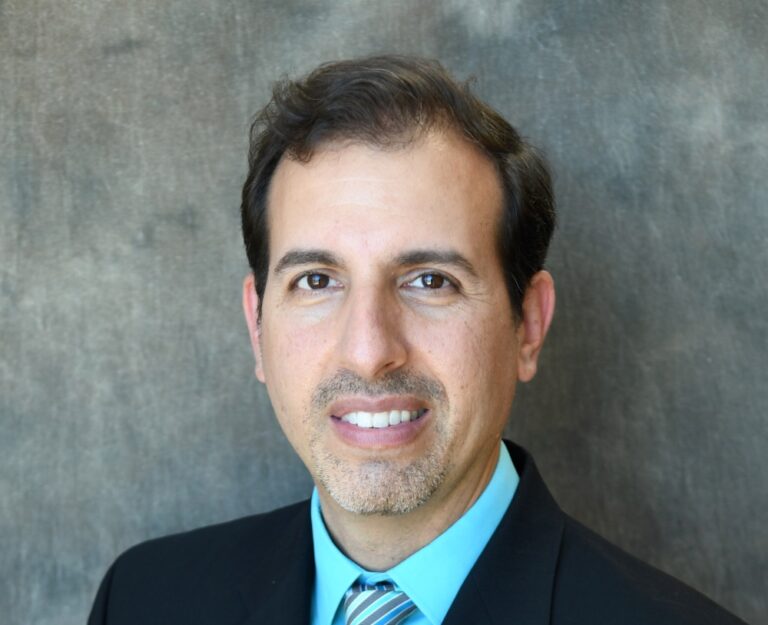Link to your individual collections by creating a new linklist in the Navigation section of the admin.
You can then have it appear here by choosing your new linklist under Customize Theme / Sidebar.

Show 1393: How to Get the Sleep You Need (Archive)
The guest for this episode is sleep expert and medical communicator par excellence, Dr. Roger Seheult. With his certification in sleep medicine, he will tell you why you need to get enough sleep along with how much is enough. If you find you have trouble sleeping, what can you do about it? Dr. Seheult has a lot of practical suggestions that go far beyond sleeping pills.
Why Is Sleep Important?
Dr. Seheult likens our body to Disneyland. The Magic Kingdom requires a lot of upkeep–trash removed, rides inspected, shelves restocked, weeds pulled and so on–but it wouldn’t be nearly as magical if workers tried to do those chores during the day when visitors are present. Instead, they take care of all that maintenance at night when the park is closed. Our bodies also need a certain amount of “trash removal” and other upkeep. Some of that happens while we are sleeping.
Sleep is not the same throughout the night. We dream during REM sleep, but that doesn’t happen until we have been sleeping for a while. Non-REM sleep includes deep sleep as well as an earlier phase. We cycle through these different types of sleep throughout the night, with more REM sleep near the morning before we wake.
How Much Sleep Do We Need?
We do need different amounts of sleep during the life cycle. Most everyone knows that babies need a lot, while children need a bit less progressively as they grow older. Teenagers still need more sleep than adults, although they don’t always get it. Often, their sleep cycles shift so they stay awake later and find it more difficult to get up early. Most adults need about seven hours of sleep a night, plus or minus an hour or so. You can tell if you are getting enough sleep if you feel refreshed when you wake up without an alarm clock.
One health problem that can keep people from getting the sleep they need is sleep apnea. In this condition, the tissues of the throat relax and obstruct breathing. Doctors often recommend a CPAP machine for their patients with sleep apnea. This provides Continuous Positive Airway Pressure that keeps the airways open and prevents interruptions in breathing. Not everyone appreciates the CPAP, though. A good seal requires careful fitting.
Insomnia Anxiety as a Vicious Cycle:
Knowing how important sleep is for our health can cause some people to become very anxious if they aren’t sleeping well. Anxiety is the enemy of sleep. Rather than stay in bed and worry about not being able to sleep, Dr. Seheult recommends getting up to do something not very exciting in another part of the home. The bedroom should be for only two activities, sex or sleep. Don’t learn to associate “not sleeping” with the bedroom.
Small Screens:
One thing to avoid is checking email or watching video in bed or just before bedtime. Small screens, computers and televisions emit blue light that has the effect of putting the brain on alert. In addition, dealing with difficult problems or exciting plots just before retiring does not help you relax.
Listening is another matter, though. Some people find that listening to music can be helpful, as long as it is not too rousing.
This Week's Guest:
Dr. Seheult is an Associate Clinical Professor at the University of California, Riverside School of Medicine, and an Assistant Clinical Professor at the School of Medicine and Allied Health at Loma Linda University.
Dr. Seheult is quadruple board-certified in Internal Medicine, Pulmonary Diseases, Critical Care Medicine, and Sleep Medicine through the American Board of Internal Medicine. HIs current practice is in Beaumont, California where he is a critical care physician, pulmonologist, and sleep physician at Optum California.
He lectures routinely across the country at conferences and for medical, PA, and RT societies, is the director of a sleep lab, and is the Medical Director for the Crafton Hills College Respiratory Care Program.
[caption id="attachment_125131" align="alignnone" width="768"] Roger Seheult, MD, MedCram, Loma Linda, UC-Riverside[/caption]
Roger Seheult, MD, MedCram, Loma Linda, UC-Riverside[/caption]
MedCram
In 2012 he and Kyle Allred founded MedCram L.L.C., a medical education company with CME-accredited videos that are utilized by hospitals, medical schools, and hundreds of thousands of medical professionals from all over the world (and over 1 million YouTube Subscribers). His passion is "demystifying" medical concepts and offering people the tools for staying healthy.
We have found Dr. Seheult's MedCram videos amazing. He has done an extraordinary job explaining COVID and the science behind various treatments. But he also makes many other complex medical topics understandable. This is a skill that few of my professors in the University of Michigan's Department of Pharmacology could claim.
Dr. Seheult was the recipient of the 2021 San Bernardino County Medical Society's William L. Cover MD Award for Outstanding Contribution to Medicine and the 2022 UnitedHealth Group's The Sages of Clinical Service Award. In 2022 both Roger Seheult and Kyle Allred received the HRH Prince Salmon bin Hamad Al Khalifa Medical Merit Medal from the Kingdom of Bahrain for their contribution to health policy in the Kingdom of Bahrain.




